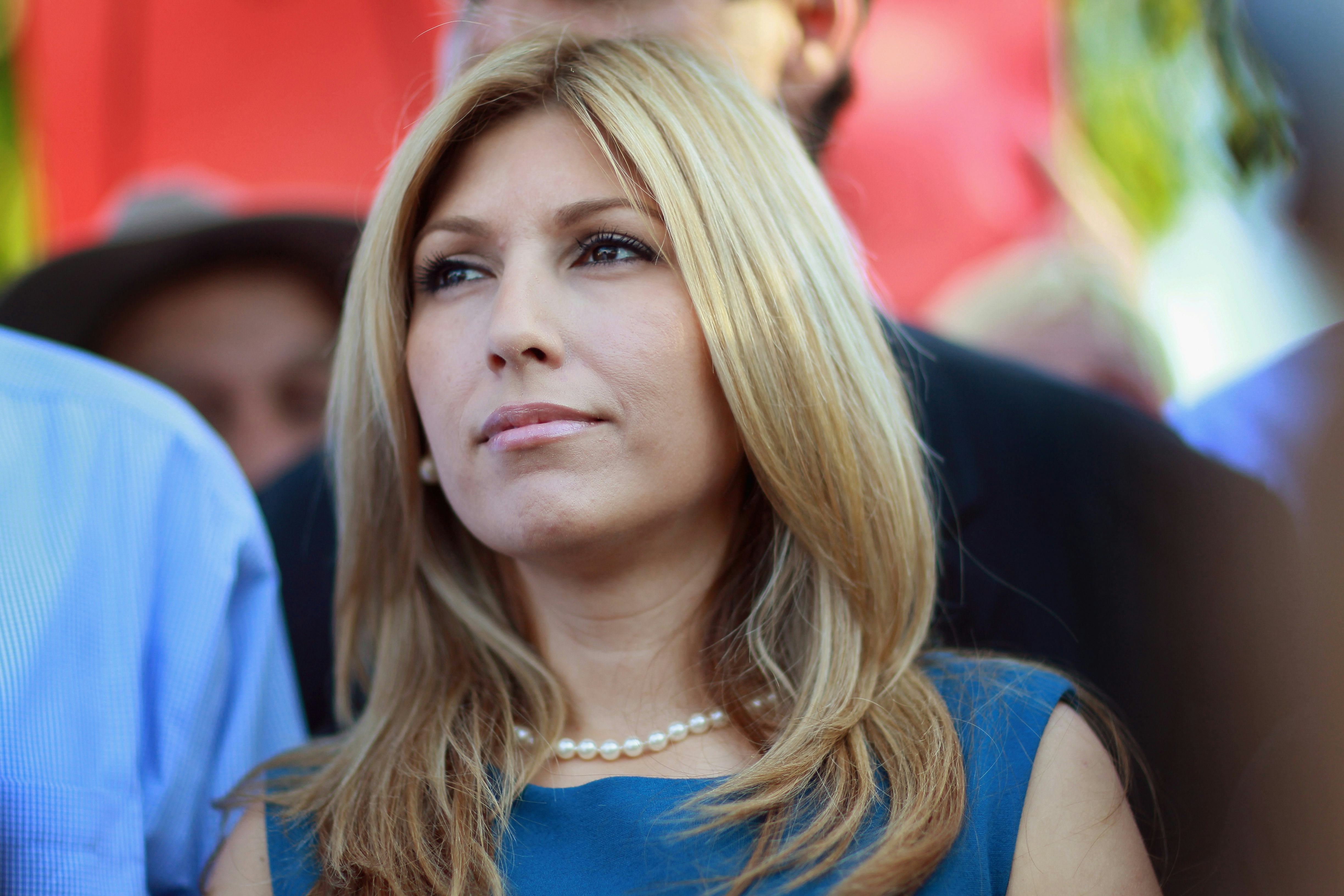As Marco Rubio, now serving as Donald Trump’s Secretary of State, embarks on a diplomatic visit to Israel aimed at advancing peace talks, public curiosity has once again turned toward his private life—particularly his wife, Jeanette Rubio. Despite her husband’s prominence on the global stage, Jeanette has spent the past two decades deliberately maintaining a low profile, choosing a life of quiet purpose over political spotlight. Her story is one of devotion, not only to her family but also to humanitarian causes that reflect deep personal conviction.

Marco and Jeanette Rubio have been married for more than twenty-one years, raising four children together in Miami. While Marco has spent much of his career in the public eye—first as a senator and now as a senior member of the administration—Jeanette has built a career that operates largely behind the scenes. She is the founder and president of JDR Consulting, a firm that provides strategic and operational support to philanthropic organizations, including the Braman Family Charitable Foundation. Her work focuses on helping charitable initiatives achieve sustainable impact, a mission that has made her a respected figure in Florida’s nonprofit community even without the attention of the national press.
Beyond her professional work, Jeanette has served on the boards of several nonprofit organizations, including the Agape Network, which supports individuals recovering from addiction and trauma. Since 2020, she has also been a member of the Statewide Council on Human Trafficking, where she collaborates with policymakers and advocates to combat the exploitation of vulnerable populations across Florida. Her dedication to this cause is personal, rooted in an awakening she experienced years ago during her pregnancy with her daughter, Amanda.
In a 2016 interview with Flamingo Magazine, Jeanette explained how her husband’s involvement in anti-trafficking legislation in the Senate opened her eyes to the issue’s proximity. “When he won and went into the Senate, he took an interest in that area and realized, okay, this isn’t just something happening overseas—it’s happening here, in our backyard, in our home state,” she said. She spoke with visible emotion about the young girls and women who fall victim to trafficking. “It’s horrible,” she reflected. “These are young girls who find themselves in desperate situations—sometimes just looking for love or a place to stay—and they end up trapped in something they can’t escape.” That empathy would later define much of her work, as she began quietly supporting local initiatives to provide shelter and rehabilitation for survivors.

Despite her growing influence in the philanthropic world, Jeanette has consistently avoided the trappings of political life. She rarely accompanies Marco to major public events, seldom gives interviews, and has never taken on the role of political surrogate. Her preference for privacy is not a calculated strategy—it’s simply who she is. During her conversation with Flamingo Magazine, she described herself as “introverted” and admitted that public speaking does not come naturally to her. “I think I’ll always be shy about that because I’m more introverted,” she said with a laugh. “I’m the complete opposite of Marco in that area. But I think I’m ready for it.”
Those few words offer a glimpse into the quiet partnership that defines their marriage. While Marco thrives in public debate and diplomacy, Jeanette brings balance through her steady presence and private service. Friends close to the couple often describe her as the anchor of the Rubio household—deeply grounded, family-oriented, and uninterested in fame. Her decision to remain out of the limelight is not rooted in detachment from her husband’s work but in a conscious belief that their family functions best when at least one of them stays out of the political storm.
Over the years, Jeanette has occasionally stepped into the public eye for causes she feels passionate about, particularly those involving children and women’s safety. She has spoken at local charity galas and collaborated with faith-based organizations on education and rehabilitation programs for victims of trafficking. Yet, even in those moments, she avoids personal attention, redirecting praise toward the survivors and the organizations she supports.
Her preference for privacy has also helped preserve a sense of normalcy for their children, a rarity for families so closely tied to national politics. The Rubios’ Miami home serves as both a retreat from the pressures of Washington and a place where Jeanette can focus on her consulting work and family life away from the scrutiny of cameras and headlines.

While Marco Rubio’s political career continues to evolve—from the U.S. Senate to his current role as Secretary of State—Jeanette remains steadfastly dedicated to her own mission. Her path may be quieter, but it is equally impactful. Through her leadership at JDR Consulting and her advocacy against human trafficking, she exemplifies a form of influence that operates through compassion rather than visibility.
In an age where political spouses are often thrust into the public eye, Jeanette Rubio represents a refreshing alternative—a figure of quiet strength whose legacy is being written not on the campaign trail, but in the lives she helps change behind the scenes. Her decision to stay out of the limelight is not a retreat but a reflection of her values: humility, service, and the conviction that meaningful work doesn’t always require applause.